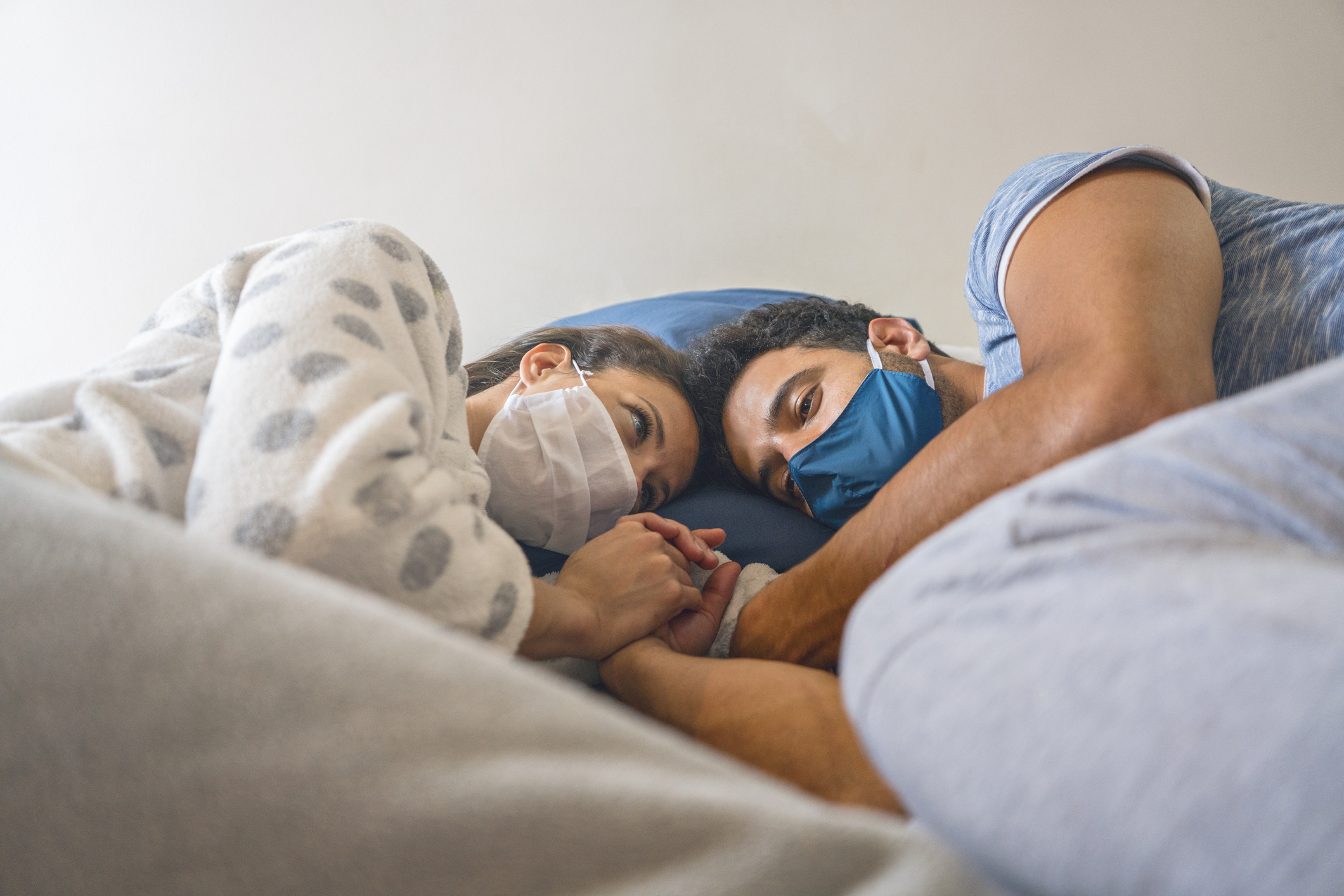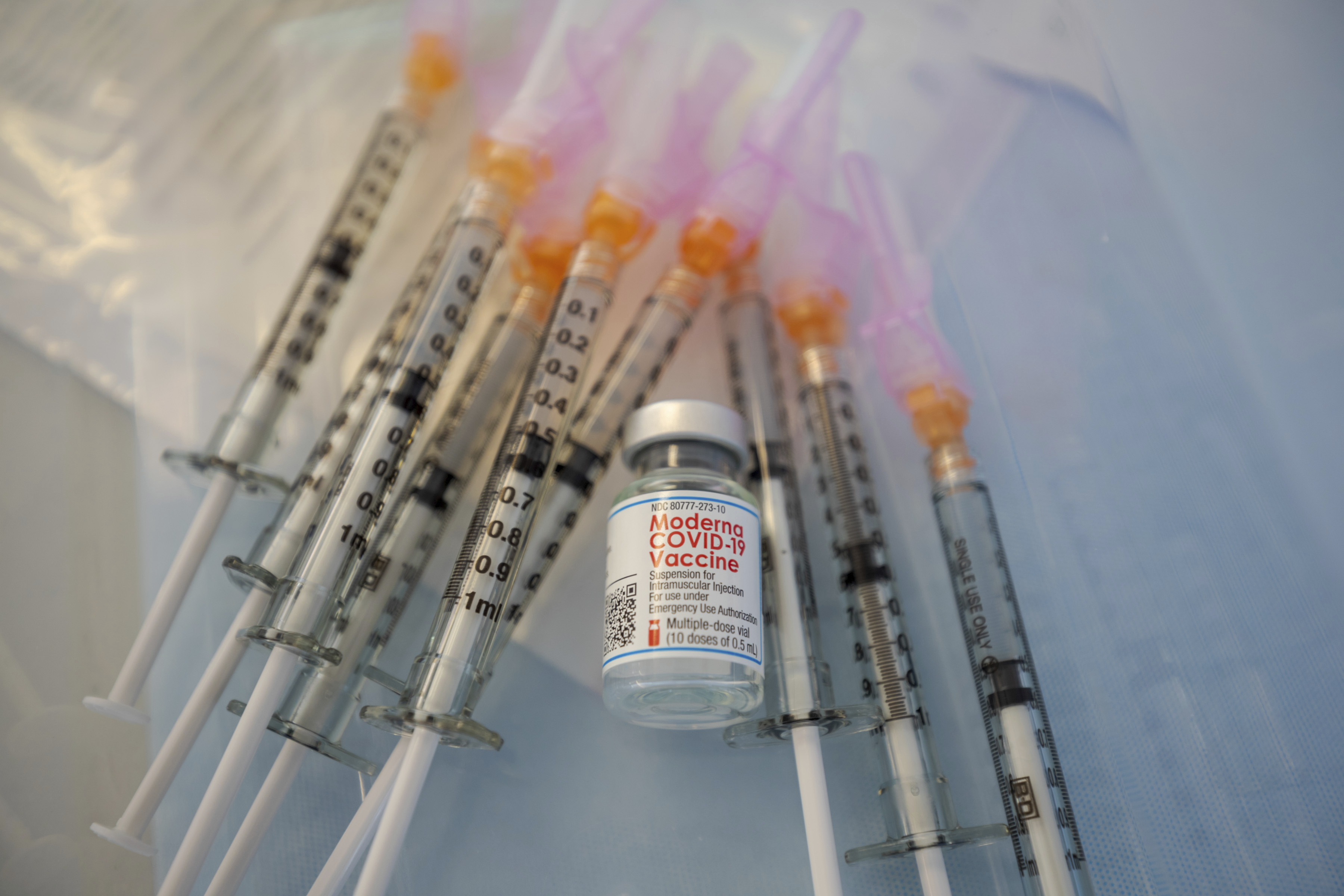Illinois COVID vaccine eligibility expanded to anyone age 16 and older, except for in the city of Chicago, on Monday.
Here's a look at who is now eligible to get the shots, as well as the answers to some of your biggest questions:
Who is eligible for the COVID vaccine in Illinois starting Monday?
All Illinois residents over the age of 16 outside of the city of Chicago will be eligible to get vaccinated beginning on April 12, Gov. J.B. Pritzker announced last month.
"At that date, all state-supported mass vaccination sites, local health departments, pharmacy partners – in short, every jurisdiction that receives vaccine from the State of Illinois’ allocation – will be instructed to move to widespread eligibility," Pritzker's office said.
Why isn't Chicago included when Illinois expands vaccine eligibility?
Chicago receives its supply of vaccine from the federal government allocated separately from the state. As such, the city operates on its own framework and timetable.
Chicago officials have repeatedly said the ability to expand eligibility depends on vaccine supply, saying on several occasions that the city was not receiving enough doses of the vaccine to further open appointments.
When will Chicago open COVID vaccine eligibility?
Chicago will open COVID vaccine eligibility to all residents age 16 and older on April 19, Mayor Lori Lightfoot said last week.
Feeling out of the loop? We'll catch you up on the Chicago news you need to know. Sign up for the weekly Chicago Catch-Up newsletter.
That date is the deadline President Joe Biden set for states to make all adults eligible for the vaccine, moving up his previously targeted date of May 1.
"We do want to be aligned with the president's objective but understanding that we need more vaccine," Lightfoot said when announcing that the city would meet that deadline. "And I want to be clear that when we open up on April 19, that doesn't mean that very day, everybody's going to get access to vaccines. There will be some lag.
"We want people to go and sign up on their turn, but given the supply of vaccines, it may be a few weeks or so before they get an appointment to be able to come in. So, we just caution them to be patient and in the meantime, to be diligent," she added.
Who is eligible for the COVID vaccine now in Chicago?
Chicago entered Phase 1C of its vaccine rollout on March 29, opening eligibility to those with underlying health conditions and essential workers like restaurant employees, those in personal care services, retail workers and more.
Here's a breakdown of who is and isn't eligible under Phase 1C in Chicago:
- Underlying medical conditions: Cancer (current diagnosis), Cardiac, cardiovascular, and cerebrovascular disorders (including heart disease, coronary artery disease, and hypertension or high blood pressure), Chronic Kidney Disease, Chronic respiratory disorders (including cystic fibrosis, moderate to severe asthma, pulmonary fibrosis, and chronic obstructive pulmonary disease/emphysema [COPD]), Diabetes (Type 1 and Type 2), Disability: physical, developmental, visual, hearing, or mental, Neurologic conditions (including dementia), Down Syndrome, Immunocompromised state (weakened immune system) including from blood or bone marrow transplant, immune deficiencies, HIV, use of corticosteroids, or use of other immune weakening medicines, Liver disease (including hepatitis), Pregnancy, Obesity: BMI ≥30 kg/m2, Schizophrenia spectrum disorders, Sickle Cell Disease, Thalassemia, persons with disabilities
- Clergy and religious organizations: People 65 years of age and older; where possible, prioritizing Chicagoans 75 years and older and Chicagoans age 65-74 with underlying medical conditions
- Energy: Workers supporting the energy sector, including those involved in energy manufacturing, distribution, repair
- Finance: Banks; currency exchanges; consumer lending; credit unions; appraisers; title companies; financial markets; financial institutions; institutions that sell financial services; accounting services, and insurance services
- Food and beverage service: Restaurant and other facilities that prepare and serve food (including bars); entities that provide food services
- Higher education: Workers in educational institutions – including junior colleges, four-year colleges, and universities, technical schools, trade schools, educational support services, and administration of education programs
- Information technology and communications: Internet, video and telecommunications systems, consumer electronics repair, computer and office machine repair
- Legal: Workers providing legal services or supporting the operations of the judicial system, including judges, lawyers, paralegals, legal assistants, process servers, couriers, bail bond agents, parole officers, probation offices, court personnel, and others providing legal assistance or performing legal functions
- Media: Newspapers, periodicals, television, radio, and other media services, news dealers and newsstands, broadcasting, news syndicates, printing, and book publishers
- Other community- or government-based operations and essential functions
- Other governmental employees; community based essential functions (e.g. urban planning, offices that provide basic needs such as food, childcare, shelter, and social services); workers in libraries
- Personal care services and hygiene: Businesses that provide personal care services, such as hair, nails, and non-medical massage.
- Laundromats, dry cleaners, industrial laundry services, and laundry service providers
- Public health: Public health entities; pharmaceutical, medical device and equipment, and biotechnology companies
- Public safety: Workers that ensure public safety systems function properly, including building inspectors, civil engineers, chemical engineers, aerospace engineers and hazardous materials responders. Workers who construct and maintain roads, highways, railroads, and ports. Cybersecurity operations workers
- Retail: Workers in retail stores including but not limited to stores that sell alcoholic and non-alcoholic beverages, medication not requiring a medical prescription, other non-grocery products (e.g. electronics, optical goods, books, etc.), other household consumer products, wholesalers, licensed cannabis dispensaries and cultivation centers
- Shelter and housing: Hardware stores and businesses; construction and maintenance of buildings, real estate; hotel and motel workers
- Transportation and logistics: Workers at gas stations; auto and bike supply and repair; businesses that supply shipping and delivery services; couriers; warehouses; private mail; Airline workers not included in 1b; workers in rail, water, truck, charter bus transportation or transportation rental
- Water and wastewater: Workers involved in wastewater treatment and operations; sanitary and storm maintenance crews performing emergency and essential maintenance of systems
Those already eligible under Phases 1A and 1B also remain eligible in 1C.
For a complete look at who qualifies for the COVID vaccine in Chicago's Phase 1C, click here
Can Chicago residents get vaccinated outside the city before eligibility expands?
Chicago residents can sign up for COVID vaccine appointments in other parts of Illinois outside of the city, Pritzker said Thursday.
"They're absolutely welcome to," Pritzker said. "I want to make sure that people in Chicago know that they are welcome to sign up for our mass vaccination sites."
Chicago Department of Public Health Commissioner Dr. Allison Arwady also said Thursday that residents are able to leave the city to receive the vaccine, particularly in areas with a lesser demand.
"I see already there's some people who are, you know, commenting about leaving Chicago to get vaccine, and I do just want to mention that where vaccine demand is softer, which is true for a lot of downstate Illinois, it is also true in Indiana, those sites are open to Chicago residents and you are eligible at them," Arwady said.
Who was previously eligible for the COVID vaccine in Illinois?
Illinois entered Phase 1B Plus of its vaccine rollout on Feb. 25, expanding eligibility to include people with certain high-risk medical conditions and comorbidities. That's in addition to the health care staff, seniors ages 65 and up, frontline essential workers and others already previously eligible in Phases 1A and 1B.
In many counties, eligibility has already expanded to anyone 16 and older after the state authorized local health departments to open eligibility at their discretion.
Click here for a complete breakdown of who's eligible where and when across Illinois and in Chicago
How to get a COVID vaccine appointment in Illinois
There are several options for Illinois residents to get vaccinated, from state-supported mass vaccination sites, to grocery stores and pharmacies, through hospitals and health systems, county health departments and more.
For a complete look at where and how you can make an appointment in Illinois, click here
When can I get a vaccine appointment in Illinois?
You may not be able to get a vaccination appointment as soon as you're eligible, officials say, repeatedly asking for patience as vaccine supply increases.
"As a reminder, even with improved vaccine shipments, patience continues to be the watchword here," Pritzker said.
Pritzker said Thursday that the state is opening up 150,000 additional first-dose appointments for the coming week at state-supported mass vaccination sites and pharmacies across Illinois. But the ramped-up rollout will take time.
"Even with all of these new appointments, there will not be enough vaccine in week one to get everyone that wants to be vaccinated a dose," he said. "But vaccine doses will be arriving more quickly than ever before and the public health system is doing everything in its power to get these vaccines into the arms of our residents as quickly as the federal government can deliver them."
How many vaccinations has Illinois done so far?
Illinois officials said Sunday that the state has administered more than 7.1 million doses of the three available COVID-19 vaccines since vaccinations began in December, currently averaging just under 127,000 doses per day as supply has increased.
Illinois Vaccinations
Note: For COVID-19, the herd-immunity threshold is estimated to be between 60 and 90 percent. Our analysis considers herd immunity reached at 75% of the population fully vaccinated based on estimates by Dr. Anthony Fauci.



